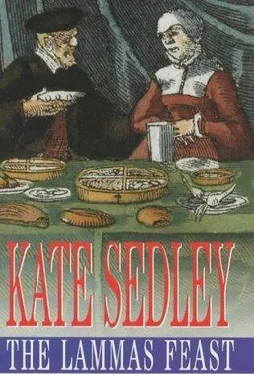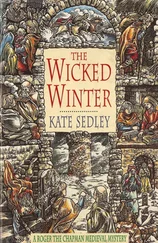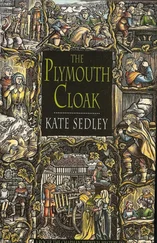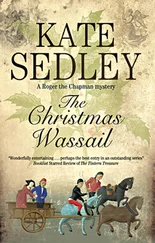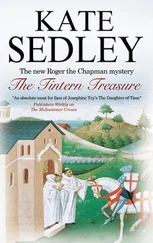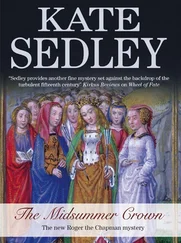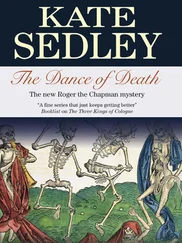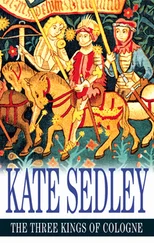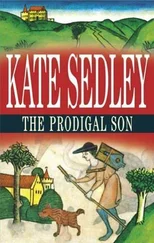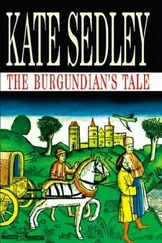Adela, the children and I accompanied Margaret to the weavers’ church of Saint Thomas, in Redcliffe. Then we all joined in the general procession as the guildsmen, the mayor and aldermen proceeded around the city walls for the setting of the Watch. In spite of the midday sun, everybody carried burning torches and cressets, to the imminent danger of all the overhanging houses that hemmed us in. But somehow, fires were kept to a minimum and no one lost his home on this particular occasion — although it has been known to happen.
Dancing and games followed. Enough lamb’s wool — that delicious drink of spiced cider topped with a foaming baked apple — was drunk to ensure that there were sufficient numbers of thick heads and lost maidenhoods by the following morning, and for Lammas Day to have lived up to its reputation as one of the jolliest festivals of the year. Bear baiting, tilting and wrestling bouts had been laid on outside the city walls, where the citizens were joined by the overflow of revellers from the Saint James’s fair. Saint John’s conduit flowed with wine, courtesy of the mayor and corporation. But what everyone was waiting for, of course, was the evening and the Lammas Feast.
Long trestle tables and benches were set up in the streets and each guild offered its own special fare. Whole oxen, sheep and calves were roasted, carved and brought to table by the guildsmen themselves, acting as servers for the day. Syllabubs, sweetmeats and cakes followed, but the centrepiece of every table was — or should have been — the great bread and pastry subtleties that were at the very heart of the feast as thanks to God for a harvest safely brought in.
This year, however, there was a dearth of subtleties. Other bakers had worked throughout the night in an attempt to replace John Overbecks’s wrecked masterpieces, without too much success. But their lack was more than made up for by the superfluity of gossip that had had the city buzzing ever since Thursday. The gaoling of John Overbecks on two charges of murder and the flight of the Baldock sisters — one of them a nun and also indicted of murder — had provided more excitement than Bristolians had experienced since Queen Margaret and her Lancastrian troops had descended on the city seven years before.
‘I presume that Jane must have run straight from the bakery to her sister at the nunnery,’ Margaret said, through a mouthful of roast mutton. ‘Marion wouldn’t have hesitated once she’d been told what had happened.’
‘Will they ever be caught, do you think?’ someone asked, but Margaret shook her head.
‘I doubt it. That pair are used to running before the wind. They’ve evaded their pursuers before. They’ll do it again.’
I wished I didn’t feel so certain that she was right. I wanted the murderer of Cicely Ford brought to justice.
Burl Hodge raised his overflowing cup to me from the opposite side of the table.
‘We’ve you to thank, yet again, Chapman, or so I understand.’ His tone was grudging, as was the little ripple of applause that accompanied his words. But at least there seemed to be less resentment towards me than there had been earlier in the week. I had done something useful for my adopted community, and its members were willing to acknowledge the fact, albeit reluctantly. I could bide my time.
I glanced around, chewing contentedly. Elizabeth sat next to me, then Adela, a sleeping Adam cradled in her left arm, and on her right, Nicholas. My daughter sucked her fingers clean of meat juices before, with a sideways glance at me to make sure that I was watching, leaned over and kissed the top of her half-brother’s little head. Nicholas, not to be outdone, got hold of one of Adam’s feet and kissed his small, pink toes. Margaret looked across the table at me and winked.
So, there we sat, the picture of a happy and contented family. Although, if I were a cynic (which, of course, I’m not) I might have recognized the very faintest trace of a doubt in that last felicitous thought of mine.
